The CDE Inaugural Symposium: “Democratic Engagement in the Age of Brexit”
The Centre’s inaugural symposium took place on 16 February, during which over 40 academics and practitioners gathered to discuss some of the key underlying themes of democratic engagement. Below is a roundup of the topics covered in the panellist discussions.
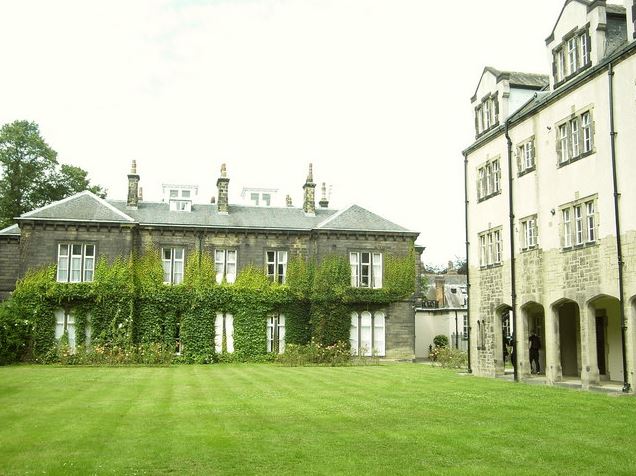
The symposium took place at the beautiful Devonshire Hall in Headingley, Leeds. Attendees were already busy discussing and publicising the symposium in the lead-up to the event, using the #CDELaunch hashtag:

The event itself began with Prof. Cristina Leston-Bandeira, co-director of the CDE, providing some details on the discussion topics and the proposed structure of the day. A perfectly-timed fire alarm illustrated that not everything can be planned in advance!
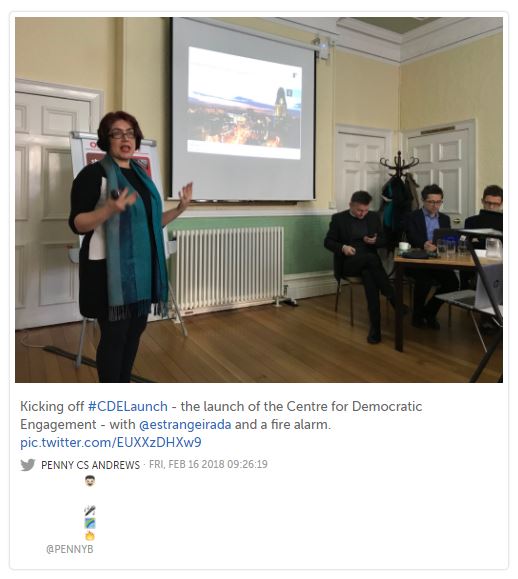
Cristina then chaired the first panel of the day, which provided a discussion of direct, participatory and representative forms of democracy. The characteristics, virtues and limitations of these forms were discussed, as well as key instances in which they had been applied.
The second panel, chaired by Dr Richard Hayton, focused on the 'post-truth' era in contemporary politics, particularly the contentious nature of 'trust' and the problems inherent in establishing political 'truth(s)'. Much of the discussion involved a re-examination of basic yet essential terms such as 'knowledge' and 'information', and the sources (if any) that we rely on to supply them.
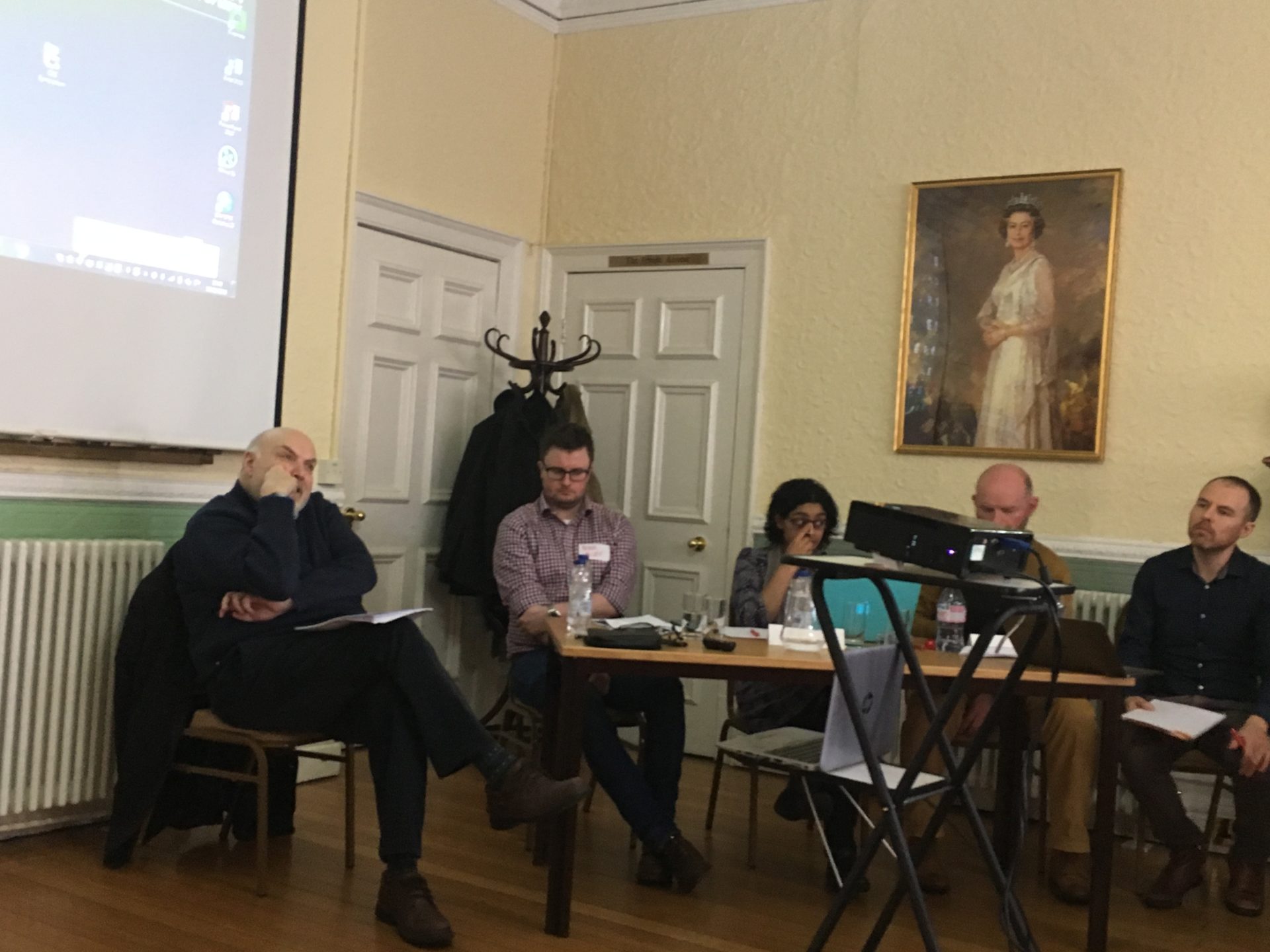
Dr Jonathan Dean - co-director of the CDE - chaired the third panel, which examined the nature of modern grassroots politics, the state of the political left, contemporary populism and theories of political 'fandom'.
Lunch promptly ensued, which then led into a roundtable discussion composed of practitioners working in the field of democratic engagement and reform. Institutional approaches to engagement (both the UK Parliament and the Welsh Assembly) were discussed in detail, as well as new and encouraging initiatives to strengthen participation. The panellist discussions, as well as subsequent questions, focused on the ways in which the UK's culture of political and parliamentary engagement could be improved.
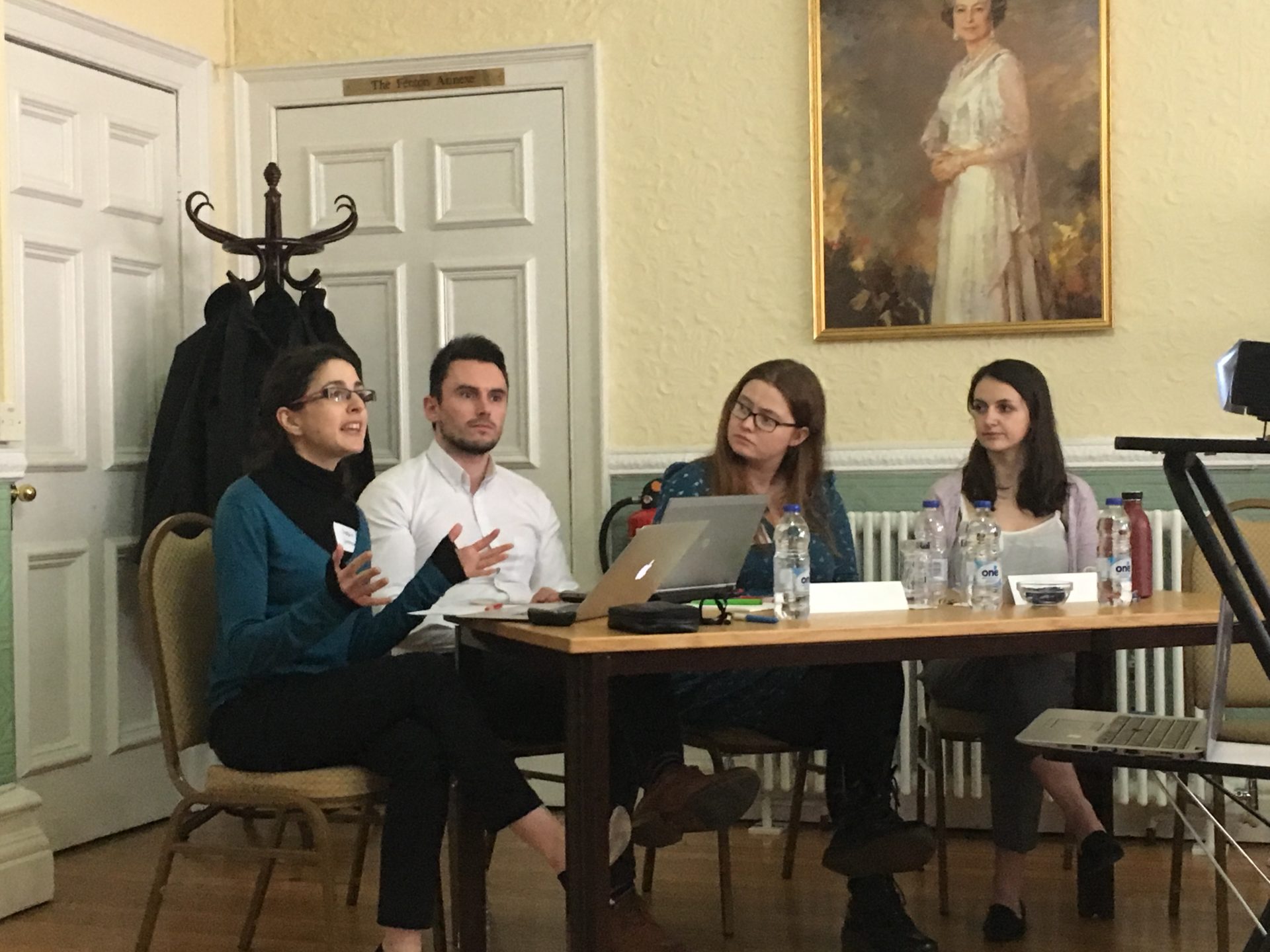
The final panel, chaired by Dr Will Allchorn, concerned the rise of the Radical Right in Europe and its repercussions for the political process. The relationship between the Radical Right and traditional democratic tenets - such as freedom of speech - were outlined, as well as the dominant narratives of ethnic minorities with respect to Brexit.
Prof. Jocelyn Evans, as the final panellist, concluded discussions on a pertinent note, warning academics against describing the electorate in overly simplistic terms. To do so, especially without clarifying basic terminology, risked deepening the divide between academics and society more broadly.
The roundup of the day's discussions, provided by Dr Jonathan Dean, also inspired the first CDE-specific GIF, courtesy of Penny Andrews. We hope there will be many more to follow:
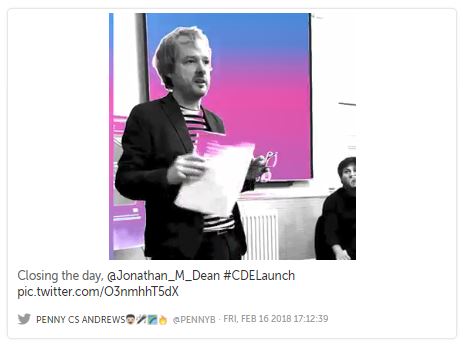
Democratic dialogue is central to the CDE ethos; the importance of discussion and collaboration across traditional academic-practitioner boundaries. Events like the inaugural symposium serve to underline this, and provide invaluable forums for academics and practitioners to meet, talk, and form lasting collaborative networks. Once again we would like to express our gratitude to all who attended and took part in the vibrant discussions.
The Symposium will now form the basis for the development of the CDE over the next few months. Watch this space!
